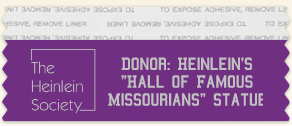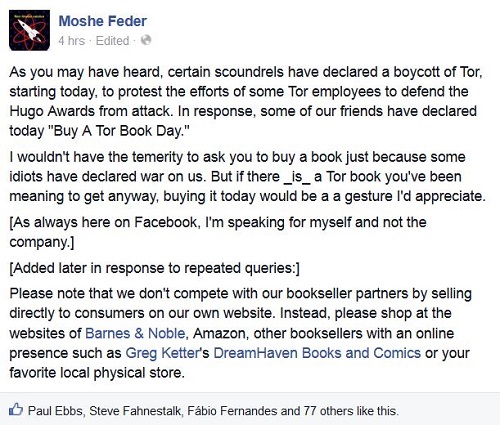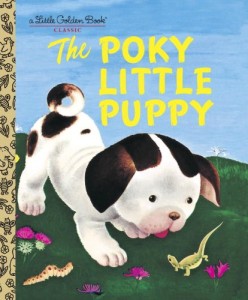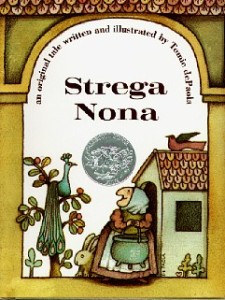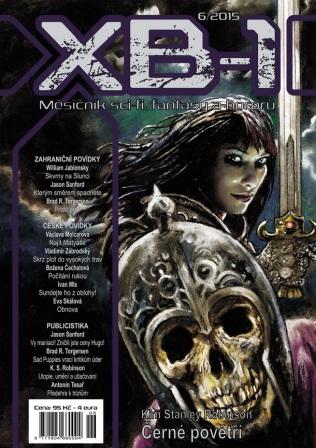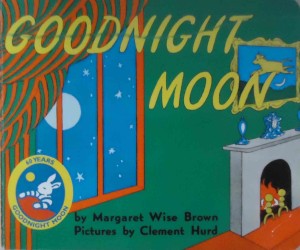(1) Kate Paulk on Mad Genius Club – “Yet Another Hugo Post”
I was going to mine the Intertubes for Nazi quotes that the Puppy-Kickers could have said if they’d been about Puppies or white men rather than Jews, but alas, even in translation Hitler and Goebbels are so much more articulate the comparison would be utterly unfair to the Puppy-Kickers (and remember, these are writers and editors – but the Nazis beat them on all fronts when it comes to articulating points of view. I suppose I should be relieved: pointing and shrieking tends to be rather less than effective as a means of converting the undecided).
Oh, and for those who are wondering? The reason I didn’t use quotes from Mao, Lenin, or Stalin was that an awful lot of Puppy-Kickers would be flattered to be compared to such luminaries of the world’s most lethal ideology.
So, let’s call them for what they are. Nasty, petty, bullying socialists who would fit in just as well with the Nazis as they would with their equally murderous Communist cousins. They even have a racial agenda, and while they’d deny it, they’re so US-centric it’s hilarious (as well as sad).
And what’s even sadder is this pathetic collection of power-hungry little Hitlers have destroyed what was once a genuinely respected award. Whether it can be resurrected by the Campaign to End Puppy-Related Sadness or not, I consider the cause to be worthy.
Anonymous (who else?) in a comment on fail-fandomanon
Oh, dear. I hope the popcorn harvest this year is bountiful; looks like we’ll need it.
Kate Paulk in a comment on “Yet Another Hugo Post”
It’s not Godwin’s law if the comparison is legitimate, Mr Brandt.
(2) Mark Judge on Acculturated – “Political Correctness Puts Science Fiction on Trial”
John C. Wright losing to “No Award” is like the Rolling Stones losing to “No Award” at the Rock and Roll Hall of Fame. It’s a disgrace.
The blackballing of Wright brings to mind, yet again, the concept of punitive liberalism. The phrase was coined by James Piereson in his brilliant and groundbreaking book, Camelot and the Cultural Revolution: How the Assassination of John F. Kennedy Shattered American Liberalism. Punitive liberalism, unlike classic liberalism—which was tolerant, thoughtful, and popular in America during most of the history of science fiction—is a product of post-1960s identity politics, is against free thought, against virile men of action (like the swashbucklers found in a lot of the Sad Puppies’ stories), against sexy ladies in pulp fiction (or anywhere else for that matter), against fun, and focused like a phaser on race, class, and gender.
It’s why John C. Wright, one of the best science fiction writers alive, is not sitting at home polishing his five Hugos.
(3) Sanford Begley on Otherwhere Gazette – “Congratulations to the winner”
The Hugo awards for 2015 are over. The clear winner is Vox “Machiavelli” Day. He pretty much got everything he wanted. He wanted Three Body Problem to win and it did. He wanted the Hugos to No Award everything and it mostly did. He wanted to help the SJWs in general and the powers behind the World Science Fiction Convention to look like screaming idiots and it happened. And he was given so much help that a casual observer has to wonder how many of the people he was destroying were secretly his minions.
Before I go into how thoroughly he won I would like to offer condolences to Laura Mixon, Guardians Of The Galaxy and the others who lost because of his machinations. Yes I said lost. You see, they will be forever tainted by the actions of the body bestowing the award. They will be the winners of the Year of the Asterisk. For those who don’t know it, a vanishingly small body by now, the asterisk is both a sign that they weren’t real winners and a symbol known in SF circles to represent the common asshole. The work they did was certainly deserving of being on the ballot, the way they won will forever brand them as not good enough to win honestly. And the fault lies not with them. The fault lies in the machinations of a clique of mostly old, mostly white, mostly male morons who could not stand the idea that they were not the all powerful force they thought they were. Well, them and Vox Day.
(4) John Carlton on The Arts Mechanical – “Scalzi And Who’s A Jerk”
He [Scalzi] starts out saying that the puppies acted like jerks. As if somehow the puppies created a world wide media smear campaign to smear the clique that ran world cons. Or pressure authors to withdraw their nominations. Or derided fans who nominated the “wrong books” as “wrong fans.” The puppies did all that? Actually no. That was Scalzi and his friends.
His primary complaint is that the puppies created slate. He’s all angry about that. As if this was the first time that anybody had a campaign to nominate books. As if He, himself had not campaigned to get his stuff nominated. Or maybe it’s because he wasn’t this year. Did he really think that he was ENTITLED to award nominations every year? I guess so. Anyway, Lets look at his list and maybe get a grasp of the truth here.
(5) Tom Knighton – “What Puppies Want From Awards”
Awards should be indicative of quality. We have maintained that the Hugos haven’t had that for a long time.
You want to know something though? We can change that perception without anyone having to surrender.
This year, Three Body Problem won for best novel. It wasn’t on any of the lists, but that was because none of us read it at that time. However, a number of people on both sides of the divide read it and loved it. It won not from just anti-puppy support, or puppy support, but from both camps loving the book.
Was that love universal? No. No book is universally loved, and 3BP has detractors. Every book does.
But what matters is that this one book had enough support from two different groups that it won. It’s proof that this world I dream of, where the good stories win regardless of anything else, can exist.
(6) Jay Swanson – “The Hugos as a Microcosm”
Hugos – How it Could Have Been
My real experience with the Hugos began last Saturday, even if I voted months beforehand (and only on like two things because I was too late to vote on most). So I’d like to address what I saw. I do think it was important, considering how everything had escalated, to send a message that said “It is not OK to hijack the Hugos.” That is a fair statement to make, and the “No Award” handed down as a result was not unfair. It was in how they were handed down that mattered.
It’s important to realize that real people were sitting in that auditorium, their hearts in their throats, their hopes burgeoning that maybe, just maybe, they would win something that night. It’s hard enough not winning an award. It’s doubly so when people applaud the fact that no one won it.
Rather than applaud (of which I’m guilty on a few counts), it would have been more appropriate had I simply nodded quietly in approval. In the same moment, it would have been good to reach out and offer comfort to one of the nominees if they had been nearby. Just to say, “Hey, I realize this sucks, but there’s always next year.”
(7) Jason Clark on Your Nerd Is Showing – “Kicking Puppies: The Promise of Sci-Fi vs. Anti-Inclusivity Brigade”
And then the No Awards began. This article is not a definite list of the winners. The Hugos have that themselves as well as many far more respected journalistic establishments. I’m only going to tell you the sweeping emotion that began to take me as I started sending messages to friends, colleagues, and acquaintances to tell them the results. I was taken by the solidarity of the thing. There were many tolerable candidates on the Sad Puppies slate, but still, the voters hold firm. They would not negotiate with what they felt were bigots or terrorists. They would not put up with the kind of people who would leave a stack of vile papers on the freebies table, hoping to insult as many groups as possible while referring to the SFWA as the “Socialist Fiction Writer’s of America.” Overall, five No Awards were announced that night, bringing the total of No Awards given in the history of the Hugos to five. The Sad Puppies were almost entirely shut out, with the singular exception of “Guardians of the Galaxy” winning long form presentation. It was a category completely full of Puppy nominees and yet, enough voters had intended to vote for it regardless, that it still won. It struck me, sitting there, as the Sad Puppies’ greatest loss. It was the one that proved that voting weren’t just there to spite them. They were protesting the Puppies’ methods and tactics, certainly. But they weren’t beyond voting for a option that they agreed with.
(8) CiaraCat Sci-Fi – “Tell me about the good SFF you’ve read/watched in 2015!”
So, now that a record number of fans have shown up to prove that the group barking “You are a tiny clique trying to block us completely out of the Hugo Awards” were, in fact, the tiny clique who themselves were trying to block everybody else out of the awards…. Let’s move on to what new SFF has been coming out!
(9) Miles Schneiderman on YES! Magazine – “Sci-Fi Fandom Declares Victory After Reactionary Nominees Lose Big at the Hugos”
Aside from Guardians, the Hugo voters took every opportunity to award nominees not supported by the Puppies. And despite a deck stacked against women and people of color, the voters rewarded both. Chinese author Cixin Liu’s The Three-Body Problem won for “Best Novel,” becoming the first translated novel ever to win a Hugo. The award in the “Best Graphic Story” category went to the first volume of Ms. Marvel, the comic book that features a teenage Muslim girl as its heroine. Julia Dillon won her second straight Hugo for “Best Professional Artist,” beating out four Puppy candidates. Meanwhile, Lightspeed Magazine beat two Puppy nominees for “Best Semiprozine,” and one of Lightspeed’s editors, Christie Yant, began her acceptance speech with a sardonic, “I’d like to thank the patriarchy.”
One of the most interesting winners was Laura J. Mixon, who won “Best Fan Writer” over four Puppies for her exposé on the notorious Internet troll known as Requires Hate. Mixon’s chances of victory had been uncertain, despite her exclusion from the Puppy slates, because Requires Hate turned out to be a left-leaning woman of color who had been nominated for the Campbell award in 2014. She earned her reputation by viciously attacking and bullying authors she perceived as misrepresenting her race and gender, and had been cited by the Puppies as a glaring example of leftist extremism. Mixon exposed and denounced her, and as a result, many anti-Puppy advocates were also anti-Mixon.
In her acceptance speech, Mixon stressed the importance of being inclusive, and while she didn’t explicitly call for the Puppies to be accepted into the fold, that sentiment could clearly be heard. She ended, however, by advocating for the powerless instead. “I stand with marginalized groups who seek merely to be seen as fully human,” Mixon said before leaving the stage. “Black lives matter.”
(10) Eric Offill on GonnaGeek – “World War Geek: Contemplating The Hugo Fiasco”
The Hugo organizers needed to listen to the dissent and try to answer the claims they are voicing. They need to create avenues of trust with those readers who feel marginalized because their taste in sci-fi isn’t trendy. Because whether they believe it or not, they can’t afford to lose these fans or the one these fans will generate. Larry Correia’s work (which I actually think is pretty good) matters. Orson Scott Card’s work matters. And if you don’t think that their voices aren’t trying to be silenced by the progressive side, ask yourself if Starship Troopers were written today, would it have even been nominated not to even mention win?
That said, the Puppies need to stop acting like victims of the establishment. Bear in mind while Sad and Rabid Puppies are two separate groups, the old adage still goes that if you lie down with dogs, you get fleas. You associate with unsavory individuals, align yourself with news outlets of disrepute, not only do you have to fight the battle you picked, but you have to fight the appearance of malice. You can’t proclaim to be taking the high ground and get into the mud with your opponents. If you truly are interested in being the voice of the marginalized, start acting like a reputable activist and you’ll find allies. Otherwise you’re letting your opponents paint you as a petulant child throwing a tantrum, and they could be right.
But neither side has an excuse for the “No Hugo” reaction. This is beyond embarrassing to EVERYONE. Whether you agree with the nominees or not, they are still nominees and DESERVE to compete for an award and not to be denied simply because the voters didn’t like the choices.
(11) George R.R. Martin on Not A Blog – “The Hugo Losers Party”
Not all the losers were there, to be sure. I had a pocket full of invitations throughout the con, as did Parris and my minions Raya and Jo and Tyler, but even so, we missed people. I never saw Mike Glyer, who I was especially eager to invite, since he had attended the first Hugo Losers Party in 1976, and had done such a great job of covering Puppygate in File 770. But we did get Liza and the LOCUS crew, and it was Charlie Brown and LOCUS who named that first party the best at Big Mac. I looked for Toni Weisskopf at the Hugo ceremony, but never found her. I saw John Joseph Adams at the ceremony, but he somehow escaped me during the picture-taking afterward, and my efforts to track him down at the KC bash came to naught. I never found Jo Walton, though I got messages that she was looking for me. There were others I missed as well… and some who were not invited. NO ASSHOLES, the invite warned. We had a small list, and no, I won’t tell you the names on it… but we wanted this party to be about joy and celebration and togetherness, not division, anger, and ugliness.
In that we succeeded. We had a great crowd. Old and young, fan and pro, male and female, gay and straight and trans, losers and winners, editors and publishers and artists and writers, all dancing and laughing and drinking and having fun. It wasn’t as crowded as that party in Denver, no, but there were probably more people; the Glover is a lot bigger than Rusty’s suite was.
And yes, a number of the guests were on the Puppy slates, and yes, the losers included people who lost to No Award, which has to be an especially hard way to lose. Maybe the party helped in some small way. I have to say, if there is any hope at all of reconciliation with the Sad Puppies, it is much more likely to be accomplished with drinks and dancing than by exchanging angry emails over the web.
(12) Lou Antonelli on This Way To Texas – George R.R. Martin Thinks I’m An Asshole”
I ran into George at the “official” reception, and asked him about a non-Hugo related subject, an article I did last spring regarding his donation of a rare first edition of “The Hobbit” to the Texas AQ&M University Library System. He essentially blew me off; I realize now he was only there to find his chums and hand them the private invites. Of course, I had no idea what he was up to. And of course, he didn’t stop to hand me an invite. But I mean, if you read his blog post – I hardly think I would have been happy there. In his blog post, at one point he says: “Some who were not invited. NO ASSHOLES, the invite warned. We had a small list, and no, I won’t tell you the names on it… but we wanted this party to be about joy and celebration and togetherness…” Jeez, George, I may not be the smartest kid in class, but it’s easy to tell my name was on your Asshole list. You know what? At least I didn’t forget my working class roots.
(13) George R.R. Martin on Not A Blog – “What’s It All About, Alfie?”
And this year, thanks to the slates, we had more losers than ever before. This year, indeed, we were all losers. Some lost the usual way, finishing behind an eventual winner. Others lost to No Award, an especially galling sort of defeat. (Which also created five losers in those five categories instead of four). Even the winners lost, since their victories will always bear as asterisk in the minds of some because they triumphed under such unusual circumstances, over a weakened field, or whatever. (I don’t necessarily endorse this viewpoint. I think some of this year’s winners deserve an exclamation point rather than an asterisk. But I have heard a fair amount of the asterisk talk even on Hugo night itself). The Hugos lost: five No Awards is an occasion for mourning, not cheers. The genre lost: I don’t buy that even bad press is good, and we sure got a lot of bad press this year. Fandom lost: division and discord poisoned our annual celebration of love for SF, and left wounds that will be a long time healing. The nominees who withdrew from the slates lost; they walked away from a Hugo nod, a painful thing to do, and were abused for that decision. The nominees who stayed on the ballot lost; they were abused for that decision too, and some, who were NOT Puppies and never asked to be slated, saw their Hugo chances destroyed by the Nuclear option. Some nominees managed to catch flak from both sides.
And there was another class of loser, less visible, but still very much a victim of the slates. Those writers who produced outstanding work in 2014, and who, in a normal year, would have almost certainly received Hugo nominations. Some might even have won rockets. But this was NOT a normal year, and the usual word-of-mouth buzz and fannish enthusiasm that generally carries a story to a place on the Hugo ballot could not and did not prevail against the slate-mongering of the Sad Puppies and the lockstep voting of the Rabids. These were the invisible losers of the 2015 Hugo season. Losing is a part of life, and certainly of the Hugos… but it is one thing to be beaten in a fair contest, and another to be shoved aside and denied the chance to compete.
It was for those ‘invisible losers’ that I decided to create the Alfies. If one accepts that the Hugo has value, these writers had suffered real harm thanks to the slates. There was no way I could hope to redress that… but I could make a gesture. In the door of my room in KC in 1976, Alfie Bester told us that winners can become losers. If so, losers can become winners too. I would give my own awards… and of course I’d name them after Alfie. So that’s how the Alfies came about.
(14) Patrick S. Tomlinson – “One Final Thought on the Hugos”
The whole SP/RP phenomenon is a microcosm of this inability to recognize and cope with shifting attitudes and preferences within the fandom community. They simply refuse to believe that the silent majority really has moved on to new things, so they concocted a narrative to explain their failures where some secret cabal is somehow stacking the deck against them. How this is accomplished, considering both the nomination and voting processes are done through public ballot, is never clearly explained.
And much like the Wisconsin voter fraud case above, the Puppy slate voting was a coordinated attack (although within the rules of the award at the time) meant to counterbalance the SJW conspiracy locking them out of the nomination process. But just like the WI case, there was no conspiracy. There was no attempt to lock them out. They just weren’t that popular among the people who follow, vote for, and attend the Hugos. They thought they’d awaken a sleeping populist dragon that would swoop down and defeat the small clique of elitists holding them back. But the beast they awoke turned on them instead.
That’s a tough pill for anyone to swallow, but the ensuing results should make it very clear where the sympathies of the actual silent majority of modern fandom lay. Now, the question is, will the SP/RP’s take the time to do some self-reflection and learn from this lesson, or will they double down and comfort themselves with even more extreme conspiracy theories? Only time will tell.
(15) George R.R. Martin on Not A Blog – “The Alfies”
Two more Alfies went to ANNIE BELLET and MARKO KLOOS. Added to the slates without their knowledge or consent, both of these talented young writers found themselves on this year’s Hugo ballot, Bellet for her short story “Goodnight Stars” and Kloos for his novel LINES OF DEPARTURE. It was the first Hugo nomination for both of them, something that every science fiction writer dreams of, a day to be remembered and cherished forever. And yet, when they discovered the nature of the slates and the block-voting that had placed them on the ballot, both Bellet and Kloos withdrew, turning down their nominations. I cannot imagine how difficult and painful a decision that must have been. Bellet’s story actually had more nominations than any other short story on the ballot, regardless of slate, which suggests that she might well have been nominated even without the ‘help’ of the Puppies. And it was Marko Kloos’ withdrawal that opened up a space on the ballot for Cixin Liu’s THREE-BODY PROBLEM, the eventual winner. They lost their shot at a Hugo (this year, at least — I think both of them will be back), but their courage and integrity earned them both an Alfie.
The last Alfie of the night had… surprise, surprise… nothing to do with the slates, the Sads, the Puppies, or any of that madness. I wanted to give a token of recognition to one of the giants of our field, a Hugo winner, Hugo loser (if you look only at the fiction categories, he has lost more Hugos than anyone, I believe), SFWA Grand Master, former Worldcon Guest of Honor, and Big Heart Award winner… the one and only Silverbob. The coolest Alfie of all (the half-lucite one that lights up) went to ROBERT SILVERBERG, the only man among us to have attended every Hugo Awards ceremony since 1953. There has never been a Hugo given out without Silverberg watching. Just think of that!
(16) CCTV – “Chinese sci-fi hit wins Hugo Awards for the first time”
Chinese sci-fi fans were ecstatic when they learned that the Hugo Awards, one of the most prestigious science-fiction awards in the world, went to a Chinese novel for the first time.
The Three-Body Problem, written by Chinese sci-fi novelist Liu Cixin, beat out four other finalists and was announced the winner of the 2015 Hugo Award for Best Novel in Seattle on Saturday night local time.
The book’s translator Ken Liu accepted the award on the author’s behalf.
As one of the key international awards for the sci-fi genre, the Hugo Awards have been recognizing the best science fiction or fantasy works published in English since 1953.
The Three-Body Problem is also the first Chinese sci-fi novel that has been translated to English. Ever since it was first serialized in a Chinese sci-fi magazine in 2006, The Three-Body Problem, now a complete trilogy, has captivated millions of people in China for its magnificent space philosophy, and was unanimously hailed by sci-fi fans as “China’s best sci-fi novel.” In 2014, the English version of the trilogy’s first book was published in the US.
The second book, The Dark Forest, is planned to hit stores this summer, and the finale, Death’s End, will be out in January 2016, according to the trilogy’s publisher Tor Books.
(17) Don’t show this to the Gallifrey One committee!
(18) Makes me feel better about my own copyediting —
‘As You Know’ Bob in a comment on File 770
Three days after losing “Best Editor” to “NO AWARD” ….Beale self-publishes a book with TWO Chapter Fives?
Is there anyone in the entire universe who continues to question the collective wisdom of the Hugo voters?
Now a bestseller:
John Scalzi Is Not A Very Popular Author And I Myself Am Quite Popular: How SJWs Always Lie About Our Compariative Popularity Levels – Kindle Edition
by Theophilus Pratt (Author, Editor)
Just look at these glowing comments:
More Chapter 5s Than Some Books !
ByTechnoLadyon August 27, 2015
Brilliant and, in all modesty, possibly one of the great works of the 21st century. I especially liked the Chapter layout and how they were sequentialized. This groundbreaking tome once and for all settles the matter of the perfidious John Scalzi’s popularity! This book actually has THREE bonus Chapter Fives, unlike some other lesser works which give you barely two. This NEEDS to be nominated for a Best Editor award next year!
Even the object of the parody admires the product:
https://twitter.com/voxday/status/637019289510379521
And John Scalzi responded to File 770 commenters’ request that he voice the audiobook by dangling this bait – “Charity Drive for Con or Bust: An Audio Version of ‘John Scalzi Is Not A Very Popular Author And I Myself Am Quite Popular’ Read by Me”
Short version: To benefit Con or Bust, a charity which helps fans of color attend science fiction and fantasy conventions, I will make an audio version of John Scalzi Is Not A Very Popular Author And I Myself Am Quite Popular: How SJWs Always Lie About Our Comparative Popularity Levels, a parody of an actual book by a certain obnoxious bigot who is obsessed with me, if $2,500 is raised for Con or Bust by 11:59pm (Eastern), Sunday, August 30, 2015. You can donate to Con or Bust here. To goose the giving, I will gift-match for the first $500 in donations.
(19) A tweet from a celebrity Hugo presenter.
https://twitter.com/DalekRainier/status/637028256332431360
(20) Bringer Tom on Metafilter
There was a period in my life when my fondest dream was to be a professional science fiction writer. All I can think now is that I dodged a huge fucking bullet when that didn’t work out.
(21) You can check out any time you like….
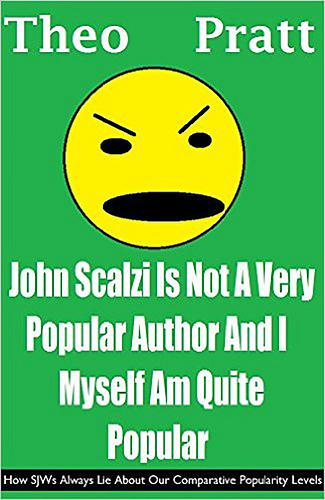 John Scalzi has released his reading of Alexandra Erin’s parody — “John Scalzi Is Not A Very Popular Author And I Myself Am Quite Popular,” the Audiobook, Read by Me, John Scalzi”
John Scalzi has released his reading of Alexandra Erin’s parody — “John Scalzi Is Not A Very Popular Author And I Myself Am Quite Popular,” the Audiobook, Read by Me, John Scalzi”
